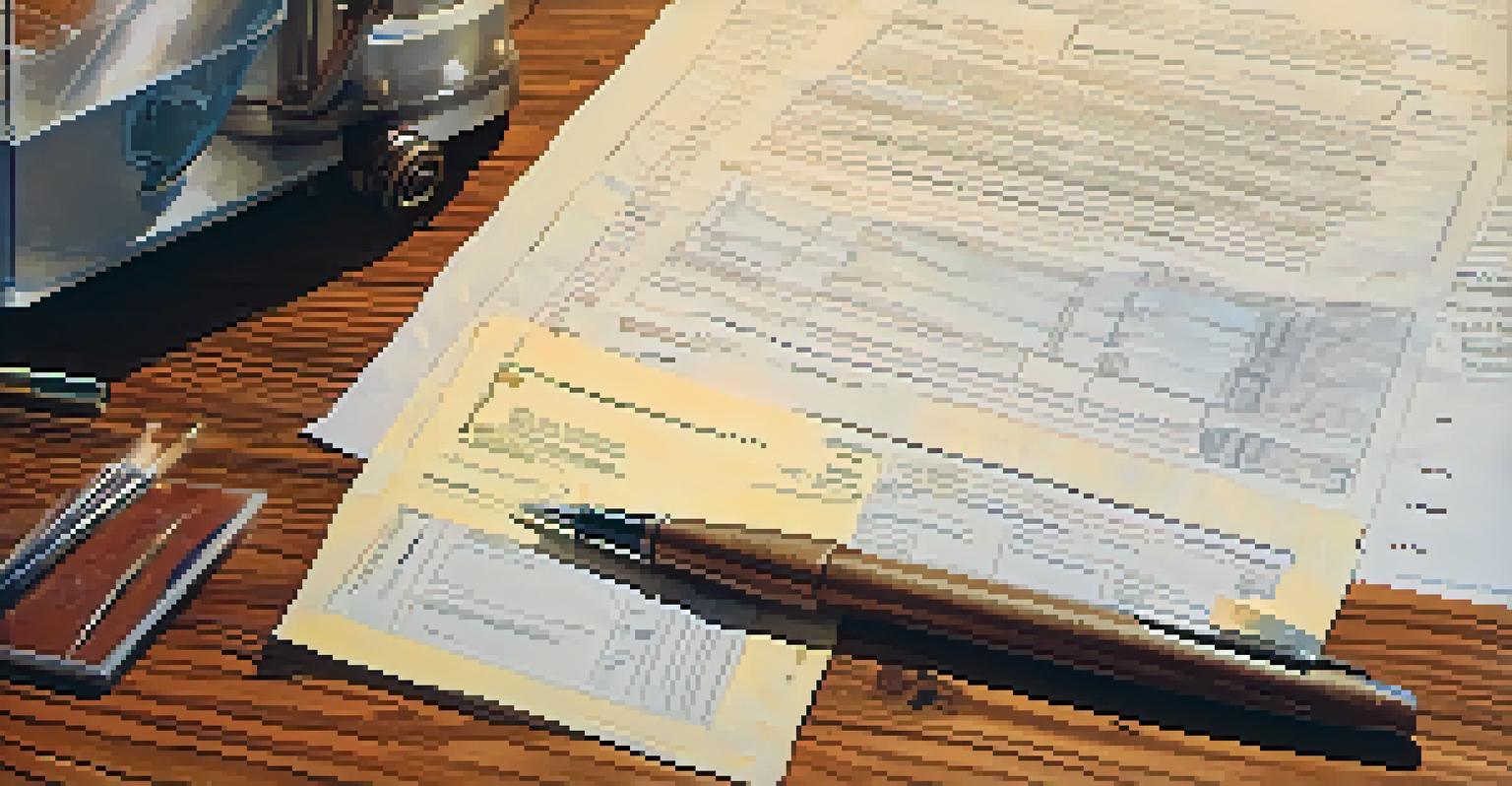Expert Tips for Working with Home Inspectors

Understanding the Role of Home Inspectors
Home inspectors play a crucial role in the real estate process, providing a detailed assessment of a property's condition. Their job is to identify potential issues that could affect the safety, functionality, and value of the home. By understanding what inspectors look for, you can better prepare for their visit and make the most of their insights.
An ounce of prevention is worth a pound of cure.
Typically, inspectors evaluate the structural integrity, roofing, plumbing, and electrical systems, among other components. They compile their findings into a comprehensive report, which serves as a valuable tool for buyers and sellers alike. Knowing this can help you focus your questions and concerns during the inspection.
Ultimately, a home inspector is your ally in the home buying or selling process. Their expertise can save you from costly surprises down the line, so it's essential to view them as a partner rather than just a formality.
Preparing for the Home Inspection
Preparation is key when it comes to home inspections. Start by ensuring that the property is accessible, which means clearing pathways, unlocking gates, and providing access to attics and basements. This helps the inspector perform a thorough evaluation without any hindrances.

Additionally, it’s a good idea to gather relevant documents like previous inspection reports, warranty information, and maintenance records. Having these on hand not only facilitates the inspection process but also demonstrates to the inspector that you take the property's condition seriously.
Home Inspectors Are Your Allies
Home inspectors provide crucial insights into a property's condition, helping buyers and sellers avoid costly surprises.
Lastly, don't hesitate to ask questions before and during the inspection. Clarifying what to expect can help ease any anxiety and set a collaborative tone for the day.
Communicating with Your Home Inspector
Open communication is vital when working with home inspectors. Begin by discussing any specific concerns you have about the property, whether it's a leaky roof or outdated plumbing. This allows the inspector to pay closer attention to those areas during their assessment.
The best way to predict the future is to create it.
It's also important to communicate your goals for the inspection. Are you looking for reassurance about the property's condition, or are you seeking leverage for negotiations? Being upfront about your expectations can guide the inspector’s focus and make their report more useful for your needs.
Finally, remember to respect the inspector’s expertise. While it’s great to ask questions, be mindful not to interrupt their process excessively. A good balance of inquiry and respect will foster a positive working relationship.
What to Expect During the Inspection
During a home inspection, you can expect the inspector to perform a systematic evaluation of the property. This typically takes a few hours, depending on the size and condition of the home. While it may feel overwhelming, this is a critical step in understanding the property's true state.
Inspectors will use various tools and techniques to assess the home, from moisture meters to thermal imaging cameras. These tools help uncover hidden issues that may not be immediately visible. Understanding this process can help you appreciate the depth of their analysis.
Preparation Enhances Inspection Success
Clearing access points and gathering relevant documents can facilitate a smoother and more effective home inspection.
As a buyer or seller, your presence during the inspection is encouraged. It provides an opportunity to see the inspection process in action and ask questions as they arise, making the experience educational and informative.
Interpreting the Inspection Report
Once the inspection is complete, you’ll receive a detailed report outlining the findings. This document can be dense, so it's important to take your time reviewing it. Focus on the major issues first—these are typically related to safety or structural concerns.
The report often includes photos and descriptions of each issue, helping clarify the inspector’s findings. If something seems unclear, don’t hesitate to reach out to the inspector for further explanation. They’re there to help you understand the implications of their findings.
Remember, not all findings are deal-breakers. Some items may require minor repairs, while others could be negotiated before closing. Use the report as a guide to assess what’s most important for your next steps.
Negotiating Repairs After the Inspection
Once you have the inspection report in hand, you may need to negotiate repairs with the seller. Start by identifying the most critical issues that need immediate attention. Prioritize safety and structural concerns, as these will often take precedence in negotiations.
When presenting your requests, be clear and reasonable. Instead of demanding that every minor issue be addressed, focus on significant repairs or concessions. This approach not only shows respect for the seller but also increases your chances of a favorable outcome.
Effective Communication is Key
Discussing specific concerns and expectations with your inspector fosters a collaborative relationship and improves the inspection outcome.
Keep in mind that the negotiation process is a two-way street. Be open to compromises, such as asking for a credit at closing instead of direct repairs. Flexibility can go a long way in reaching a mutually beneficial agreement.
Following Up After the Inspection
After the inspection is complete and negotiations are settled, it’s important to follow up on any agreed-upon repairs. Ensure that these are being addressed before closing, and don’t hesitate to ask for documentation of completed work. This protects your investment and gives you peace of mind.
You may also want to schedule a re-inspection if significant repairs were made. This ensures that the issues were resolved correctly and to your satisfaction. Having a trusted inspector return can confirm that everything is up to standard.

Finally, maintain a relationship with your home inspector for future needs. Whether it's routine maintenance or advice on home improvements, having a reliable expert on hand can be invaluable as you settle into your new home.